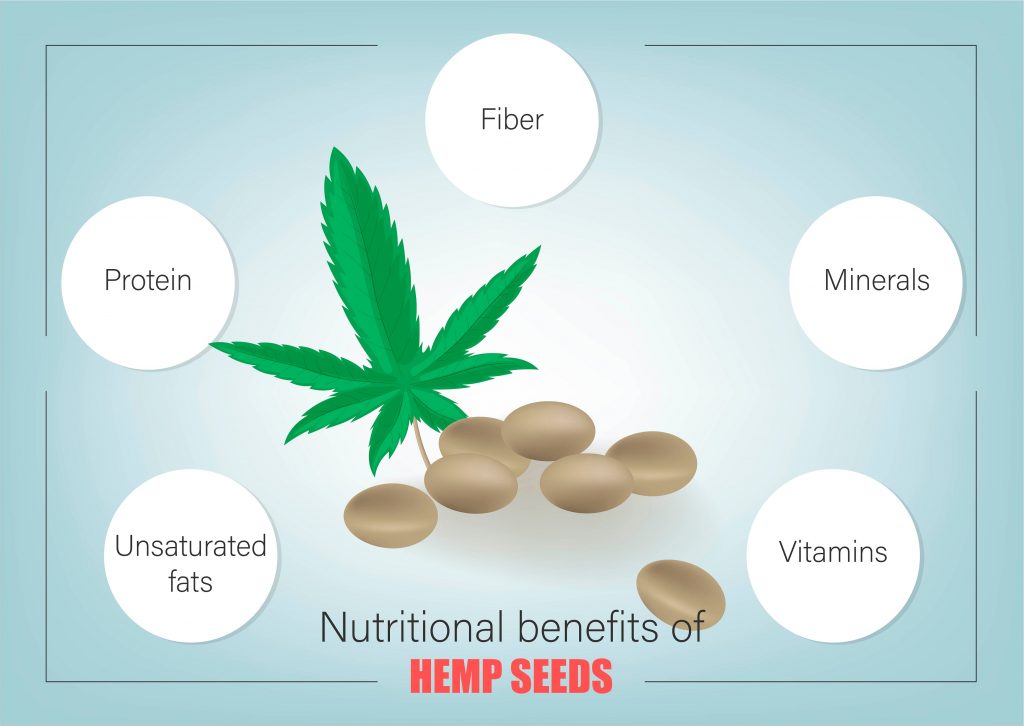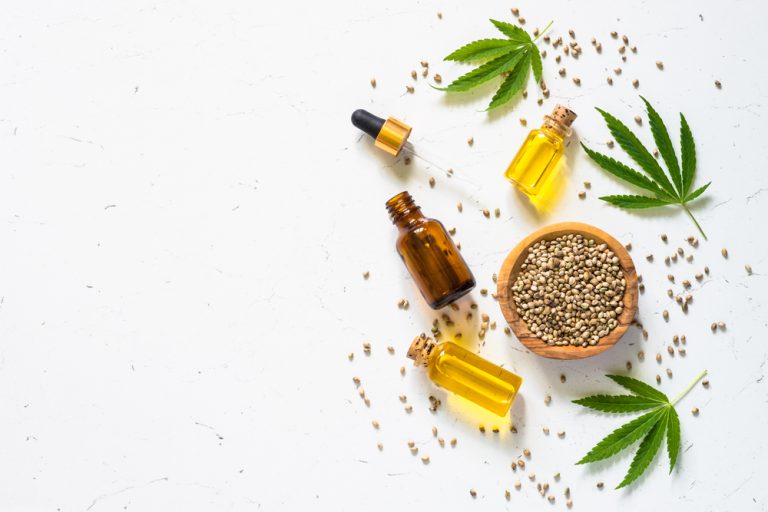Hemp seeds are usually a waste product in the production of hemp grown for hemp fiber. They are available unshelled (usually designed fish and bird feed) and shelled, which is most often consumed by us. They can be added to pasta, salads, smoothies, and homemade baked goods.
Hemp treasure
Hemp seeds are recommended primarily as a rich source of complete protein. They contain around 35g of protein per 100g, including all essential amino acids. Hemp seeds are a good choice for people who do not eat meat or dairy products. They are also full of unsaturated fatty acids, essential in our diet, which constitute about 80-90% of the total content of fats present in the seeds.

What vitamins and minerals we should look for in hemp?
First of all, a large amount of manganese - responsible for the activation of many enzymes, necessary, inter alia, for the absorption of vitamins, and magnesium, which will take care of the proper functioning of the nervous system and good well-being.
They also contain phosphorus (which, together with calcium, makes up the building blocks of our bones), iron, essential for the production and activity of red blood cells, and zinc, the guardian of beauty and immunity.
Among vitamins, hemp seeds contain most of those which take care of the proper functioning of the nervous system, - B vitamins (especially B1, B3, and B5) and vitamin E, known as the "youth vitamin".
Although hemp seeds are full of advantages, it is worth remembering that - just like other seeds - they are very caloric. Just one spoonful of hemp seeds (about 10 grams) contains about 50 calories, which is the equivalent of a large pear.
Flour, milk, or maybe oil?
In addition to hemp seeds, hemp flour, hemp milk (a good substitute for soy milk), and the once-popular hemp oil are also available for purchase.
The oil is obtained from hemp seeds by cold pressing and, like the seeds, is rich in unsaturated fatty acids. Of these, linoleic acid from the omega-6 group is the most abundant (about 50-60%).
This oil can be eaten, but one should remember not to heat it because it is not resistant to high temperatures and loses its healthy properties after heat treatment. First of all, however, it is an excellent natural cosmetic. It will prove useful as a serum for sensitive and prone to irritation skin as it will help reduce its tension and itching. However, it is also suitable for oily and acne-prone skin. Thanks to the linoleic acid content it supports the reduction of imperfections and also has an anti-inflammatory effect. It is worth mixing it with hyaluronic acid which, among other things, takes care of proper skin hydration.
Just a few drops of oil are enough to moisturize your face - enough not to leave a greasy film on your skin. Due to the fact that it goes rancid easily, it is best to store it in a refrigerator after opening and use it within 6 months.






